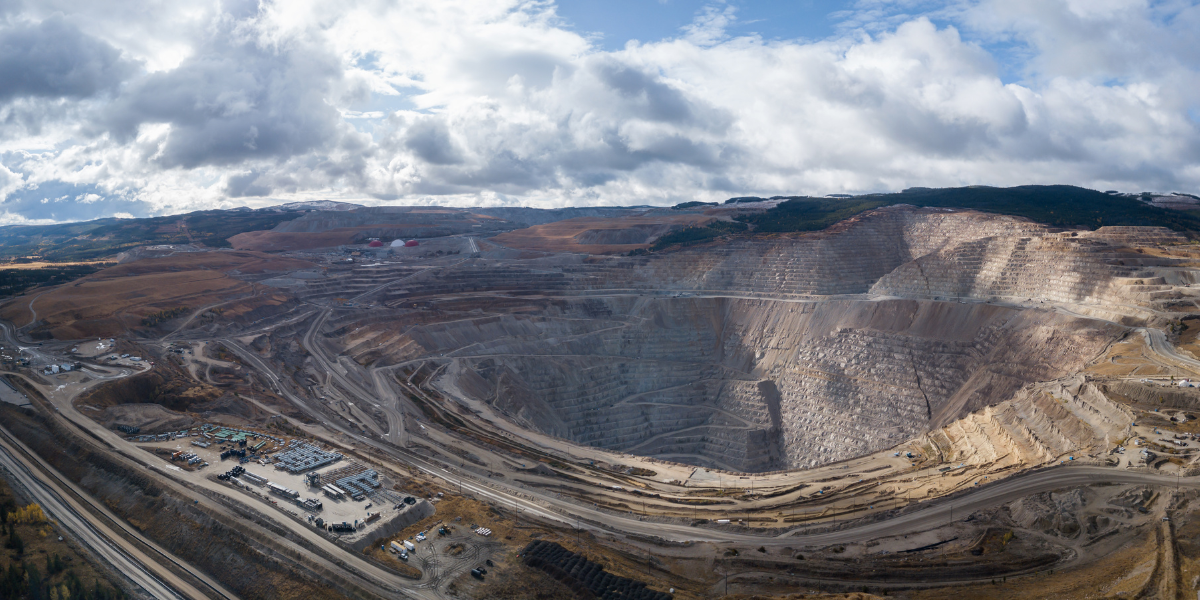
Iron ore mining operations, particularly those involving quarrying, present a unique set of challenges and risks. From the use of specialised equipment like geological tools, drilling rigs, and blasting equipment, to the potential for significant environmental and safety hazards, the complexities of the industry are vast.
Protecting these investments and operations is important, and comprehensive insurance plays a vital role in mitigating the associated risks.
In this blog, we will explore the various equipment used in exploration and drilling, the key risks involved, and how iron mining insurance can provide essential coverage. Additionally, we will discuss the importance of insurance in ensuring business continuity amidst the unpredictable nature of quarry operations.
Equipment Used in Exploration & Drilling
In the iron ore mining industry, specialised equipment is essential for the exploration and drilling processes.
Geological tools such as magnetometers and GPS devices are used to identify and map ore deposits, ensuring precise drilling locations. Drilling rigs, including core drills, rotary drills, and down-hole hammers, are employed to extract ore samples and create access points for mining. These rigs must be robust and capable of handling the challenging terrain and depth of iron ore deposits.
Blasting equipment, including drill and blast tools and explosives, is used to break apart rock formations, making it easier to extract the ore. The precision and control of these tools are critical to ensuring safety and efficiency in the mining process.
Key Risks Associated with Exploration & Drilling
Equipment Breakdown and Damage

During iron ore mining, equipment breakdowns and damage are significant concerns. Drilling rigs, such as core drills and rotary drills, are vital for extracting ore samples and assessing the viability of a site. However, these machines are prone to wear and tear due to the harsh conditions and intensive use. For example, drill bits and down-hole hammers can suffer from excessive heat and pressure, leading to premature wear or even catastrophic failure. Additionally, blasting equipment, including drill and blast tools and explosives, can malfunction or be mishandled, resulting in incomplete blasts or unintentional detonations. Such incidents not only require costly repairs or replacements but can also halt operations, causing delays and financial losses.
Click here to learn about miner equipment insurance
Environmental Hazards

Iron ore mining, particularly in quarry operations, poses several environmental risks. The extraction process can lead to soil erosion, loss of biodiversity, and the contamination of water sources. Spills or leaks of drilling fluids and lubricants can seep into the surrounding soil and groundwater, causing long-term environmental damage. Furthermore, the use of explosives for blasting can create dust clouds containing particulate matter, which may affect air quality and pose health risks to nearby communities.
There is also the risk of acid mine drainage, where sulphide minerals exposed during mining react with air and water to produce sulfuric acid, which can leach into water systems, causing severe environmental harm. Regulatory fines and cleanup costs associated with these hazards can be substantial, making environmental risk management a critical aspect of iron ore mining.
Worker Injuries and Illnesses

The mining sector is inherently hazardous, with significant risks to the health and safety of workers. Accidents during drilling and blasting operations are a major concern. For instance, workers operating drilling rigs are at risk of being struck by moving parts or falling debris, which can result in severe injuries. The use of explosives also poses a risk of accidental detonations, leading to serious injuries or fatalities.
In addition to physical injuries, workers may be exposed to harmful dust and chemical agents, increasing the risk of respiratory illnesses and other long-term health conditions.
Additional Risks in Exploration and Drilling
Beyond the primary concerns of equipment failure, environmental hazards, and worker safety, there are several other risks associated with iron ore mining in quarry operations. These include:
- Seismic Activity: Blasting and heavy machinery use can induce minor seismic activity, potentially leading to ground instability and increased risk of landslides or cave-ins.
- Regulatory Compliance: Mining operations are subject to stringent regulations and permitting requirements. Non-compliance can result in legal penalties, operational shutdowns, or revocation of licences.
- Logistical Challenges: The remote locations of many iron ore mines can complicate logistics, making it difficult to transport equipment, supplies, and personnel.
- Market Volatility: Fluctuations in iron ore prices can impact the profitability of mining projects, making it challenging to predict and manage financial risks.
Click here to read some more risks to mining operations
Addressing these risks through comprehensive risk management strategies and insurance coverage is essential for the successful and sustainable operation of iron ore mining projects. Mining insurance companies are there to protect your business from the risks.
How Iron Ore Mining Insurance Mitigates Risks
Iron ore mining is a complex and high-risk industry, and comprehensive insurance coverage is essential to mitigate the various risks associated with exploration and drilling.
“At Connect Business Insurance, iron ore mining coverage extends to a range of risks, including mine security, fixed plant and equipment, property damage, environmental liabilities, personal injury, business interruptions, and design faults and defects. Moreover, we cater to a diverse group of contractors under mining contractor insurance, such as engineering contractors, electrical contractors, environmental technology specialists, mine geologists, and fly-in fly-out workers.”
Here's how comprehensive insurance policies protect against specific risks:
Property and Liability
Property and liability insurance protects mining operations against damage to fixed plant and equipment, which are critical to daily operations. In the event of equipment breakdowns or damage caused by natural disasters, vandalism, or accidents, property insurance ensures that the costs of repairs or replacements are covered.
Liability insurance also covers mining companies from third-party claims arising from accidents or property damage caused by mining activities. For instance, if blasting operations inadvertently damage nearby structures or cause environmental harm, liability insurance can cover the resulting legal and compensation costs.
Business Interruption
Unexpected events, such as equipment failures, natural disasters, or regulatory shutdowns, can significantly disrupt mining operations. Business interruption insurance provides financial compensation for lost income and additional expenses incurred during these disruptions.
This coverage is crucial for maintaining cash flow and ensuring the continuity of business operations during unforeseen incidents. For example, if a mine experiences a prolonged shutdown due to a major equipment failure, business interruption insurance can help cover the loss of income and assist in covering fixed costs.
Workers' Compensation
Workers' compensation insurance provides financial protection for the company in the event of work-related injuries or illnesses. This coverage includes medical expenses, rehabilitation costs, and lost wages for affected employees.
Pollution Liability
Pollution liability insurance covers the costs associated with environmental damage caused by mining activities. This includes cleanup costs, legal fees, and fines resulting from spills, leaks, or other environmental incidents.
For example, if a spill of drilling fluids contaminates nearby water sources, pollution liability insurance can cover the cleanup and remediation expenses, as well as any legal penalties. This coverage is essential for complying with environmental regulations and mitigating the financial impact of environmental incidents.
“At Connect Business Insurance, we understand the specific needs and challenges of the mining industry. Our comprehensive insurance policies are designed to provide robust protection against a wide range of risks, ensuring that your operations are safeguarded and can continue with minimal disruptions.”
Click here to get a free quote for your mining business
Ensuring Business Continuity with Insurance
Ensuring business continuity in the iron ore mining industry requires a robust insurance strategy that safeguards against unforeseen losses.
Comprehensive insurance coverage provides essential financial protection against unexpected events such as equipment damage, accidents, or environmental incidents. These policies not only cover the immediate costs of repairs, replacements, and legal liabilities but also provide compensation for business interruptions, allowing operations to resume swiftly.
This financial security grants mining companies the peace of mind to focus on core operations, innovation, and strategic growth, knowing that potential risks are managed effectively.

Protect your mining and civil operations with comprehensive insurance coverage from Connect Business Insurance.
Don't leave your business exposed—secure your future with a trusted partner in mining and civil insurance. Contact us today to learn more about how we can help protect your assets and ensure business continuity. Get covered now!
Note: The material offered here is for informational purposes only. It does not constitute legally binding advice and should not be a substitute for a consultation with an insurance expert.






.svg)




